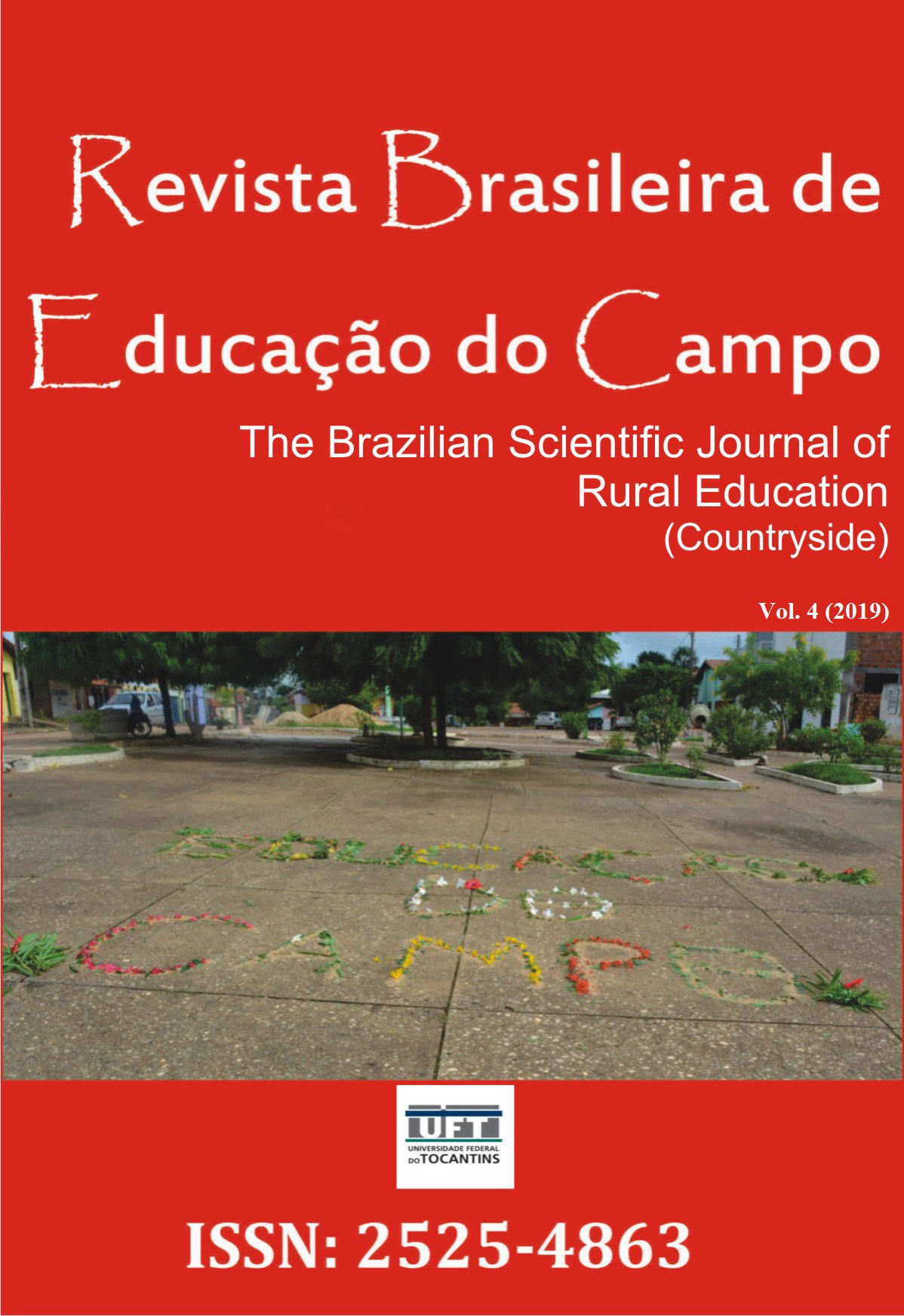Pedagogy of Alternation in basic and professional education: achievements and challenges in 25 years of operation of the Network of Semi-Arid Integrated Family Schools (REFAISA)
DOI:
https://doi.org/10.20873/uft.rbec.e7327Schlagworte:
Pedagogía de Alternación, Escuela Agrícola Familiar, Red Regional, Educación Contextualizada, Desarrollo Local.Abstract
ABSTRACT. This work, which is originally the result of a professional master's research, aims to analyze and systematize the achievements and challenges of the Family Farming Schools (EFA’s) linked to the Network of Integrated Farming Schools of the Semiarid (REFAISA). This network develops the pedagogy of alternation through basic education (elementary school II) and high school professional, having twenty-five years of experience in the Brazilian Semiarid (SAB). The methodological approach was based on qualitative research and action research mediated by participatory methodologies as tools for problematization and data collection from June 2017 to June 2018, with the subjects and social groups of Sobradinho's EFA's, Correntina, Macaúbas sprouts, Rio Real, Irará, Alagoinhas and Monte Santo, in the state of Bahia, and Ladeirinhas (Japoatã), state of Sergipe. Advances are evidenced in the formation of adolescents and young people in connection with the territories and their complexities, and in the promotion of Contextualized Education in Alternation with its pedagogical instruments that guide the integral formation of the subjects. In addition to the importance of networking through REFAISA, which has enabled the pedagogical advice and institutional policy of affiliated EFA's. The main challenge is the guarantee and maintenance of the public financing of the EFA's and their institutionality as public policy of the State and not of government.
Downloads
Literaturhinweise
Baptista, M. C., & Baptista, N. Q. (Orgs.) (2005). Educação rural: sustentabilidade do campo (2a ed.). Feira de Santana, BA: MOC; UEFS; (Pernambuco): SERTA.
Chartier, D. A. (1986). I’aube des formations par alternance: histoire d’une pédagogie associative dans le monde agricole et rural. Paris: Messonance, Éditions UNMFREO.
Costa, T. P. (2018). Educação profissional contextualizada e pedagogia da alternância: contribuição da REFAISA na formação de jovens do campo (Dissertação do Mestrado). Universidade Federal do Vale do São Francisco, Juazeiro.
Costa, T. P., Freitas, H. R., & Marinho, C. M. (2018). Diretrizes Políticas e Pedagógicas da Educação Profissional Contextualizada em Alternância da Rede das Escolas Famílias Agrícolas Integradas do Semiárido. Juazeiro. REFAISA.
Costa, T. P., Ribeiro Freitas, H., & Moraes Marinho, C. (2019). Pedagogia da alternância na educação profissional contextualizada. Revista de Educação Popular, 18(1), 140-157. Doi: https://doi.org/10.14393/REP-v18n12019-45467. Recuperado em 22 julho, 2019, de: http://www.seer.ufu.br/index.php/reveducpop/article/view/45467
Fanck, C. (2007). Entre a Enxada e o Lápis: a prática educativa da Casa Familiar Rural de Francisco Beltrão/Paraná [manuscrito]/Clenir Fanck; orientadora: Marlene Ribeiro. 153f. + Anexos.
Freire, P. (2003.). A importância do ato de ler (44a ed.). São Paulo: Cortez.
García-Marirrodriga, R., & Puig-Calvó, P. (2010). Formação em alternância e desenvolvimento local: o movimento educativo dos CEFFA’s no mundo. Belo Horizonte: O Lutador.
Gimonet, J. C. (2007) Praticar e compreender a Pedagogia da Alternância dos CEFFA’s. Tradução de Thierry De Burghgrave. Petrópolis, RJ. Vozes, Paris.
Machado, D. T. (2017). Educação no campo em Rondônia: a prática educativa na Escola Família Agrícola Vale do Guaporé. Revista de Educação Popular, 16(2), 95-104. Doi: https://doi.org/10.14393/REP_v16n22017_art07
Nosella, P. (1977). Uma nova educação para o meio rural: sistematização e problematização da experiência educacional das Escolas Família Agrícola do movimento de educação promocional do Espírito Santo (Dissertação de Mestrado). Pontifícia Universidade Católica de São Paulo, São Paulo.
¬¬Nosella, P. (2012). Educação no campo: origens da pedagogia da alternância no Brasil. Vitória: EDUFES.
Oliveira, M. M. (2014) Como fazer pesquisa qualitativa. (6a Ed.). Petrópolis, RJ: Vozes.
REFAISA. (2009) Conhecendo a REFAISA: Contexto histórico da Refaisa. Recuperado de: http://refaisaba.blogspot.com/2009/02/conhecendo-refaisa.html. Acesso em 04 jul. 2019
Ribeiro, M. (2008) Pedagogia da alternância na educação rural/do campo: projetos em disputa. Educação e Pesquisa, 34(1), 27-45. Doi: http://dx.doi.org/10.1590/S1517-97022008000100003
Silva, L. H. (2012). As experiências de formação de jovens do campo: alternância ou alternâncias? Curitiba, PR: CRV.
Thiollent, M. (2011). Metodologia da pesquisa-ação. 18. ed. São Paulo: Cortez.
Unefab. União das Escolas Famílias Agrícolas do Brasil. (2005). Histórico das Escolas Família Agrícola. Recuperado em 20 dezembro, 2019, de: http://unefab.org.br/home/historico.htm e http://www.unefab.org.br/p/efas_3936.html
Veröffentlicht
Zitationsvorschlag
Ausgabe
Rubrik
Lizenz
Creative Commons Attribution License
Creative Commons Attribution License
Proposal for Copyright Notice Creative Commons
1. Policy Proposal to Open Access Journals
Authors who publish with this journal agree to the following terms:
A. Authors retain copyright and grant the journal right of first publication with the work simultaneously licensed under the Creative Commons Attribution License that allows sharing the work with recognition of its initial publication in this journal.
B. Authors are able to take on additional contracts separately, non-exclusive distribution of the version of the paper published in this journal (ex .: publish in institutional repository or as a book), with an acknowledgment of its initial publication in this journal.
C. Authors are permitted and encouraged to post their work online (eg .: in institutional repositories or on their website) at any point before or during the editorial process, as it can lead to productive exchanges, as well as increase the impact and the citation of published work (See the Effect of Open Access).














